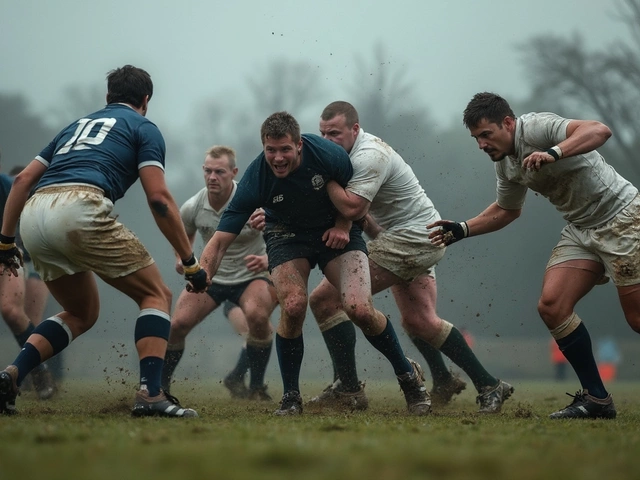Rugby Terminology: Essential Terms Every Referee and Fan Needs to Know
When you watch a rugby match, you hear words like scrum, a method of restarting play after a minor infringement, involving eight players from each team binding together and pushing against each other, ruck, a situation where one or more players from each team are in contact over the ball on the ground, competing for possession, and sin bin, a temporary suspension area where a player is sent off for 10 minutes due to a serious foul. These aren’t just jargon—they’re the building blocks of how the game works. If you don’t know what they mean, you’re watching the action without understanding the rules behind it.
Rugby terminology isn’t just for referees. Players, coaches, and even fans who want to get deeper into the game need to know these terms. A lineout, a way to restart play after the ball goes out of bounds, where players lift teammates to catch the thrown ball isn’t just a throw—it’s a tactical moment that can shift momentum. The difference between a penalty, a free kick awarded for a foul, allowing the non-offending team to choose how to restart play and a free kick, a less severe restart given for technical errors like a forward pass or knock-on can mean the difference between scoring and losing. And let’s not forget try, the primary way to score in rugby, worth five points, achieved by grounding the ball in the opponent’s in-goal area. It’s not a touchdown. It’s not a goal. It’s a try—and it changes everything.
Understanding these terms helps you see why referees make the calls they do. When a player gets sent to the sin bin, it’s not punishment for being rough—it’s for a dangerous tackle or repeated offenses. When a team opts for a kick at goal after a penalty, they’re choosing points over territory. Every decision ties back to the rules, and every rule has a name. You can’t follow the game properly if you’re guessing what "offside" or "double movement" means. These aren’t obscure terms—they’re the language of rugby.
Some of the posts in this collection cover related topics like how equipment is used (or misused) in sports, or how scoring systems work in different games. But here, we’re focused on rugby—what it’s called, why it’s called that, and how it shapes the way the game is played and officiated. Whether you’re new to refereeing, training to become one, or just trying to make sense of the chaos on the field, this is your cheat sheet. Below, you’ll find real articles that break down specific rugby-related questions—from streaming services that show matches to how rules are enforced in practice. No theory. No fluff. Just what you need to know to understand rugby better.
What Do the French Call Rugby? The Local Name and Cultural Context
The French call rugby 'rugby'-pronounced 'roo-bee.' No translation needed. Discover why France kept the original name and how the sport became deeply woven into French culture.





